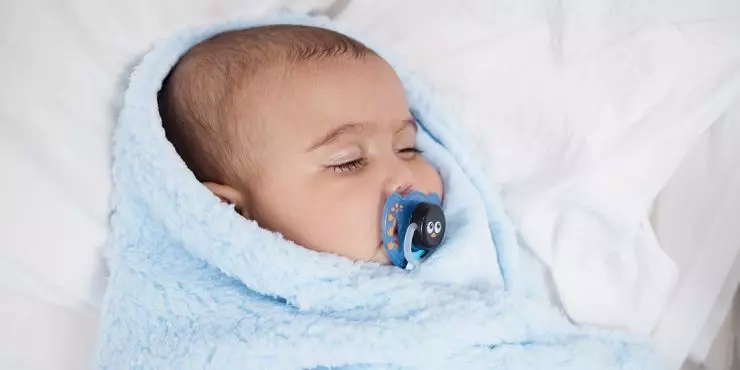
As the colder months approach, so does the dreaded cold and flu season. For new parents, this time of year can feel especially stressful as you work to protect your little one. Babies, with their developing immune systems, are more vulnerable to colds, the flu, and other respiratory infections, making it crucial to take extra precautions during this time.
Tips for Protecting Baby During Cold and Flu Season
1. Stay Up-to-Date on Vaccinations
Vaccinations are one of the most effective ways to protect your baby from serious illnesses. While infants are too young for the flu shot before 6 months, it’s important that all caregivers and family members who are eligible get vaccinated. This creates a "cocooning" effect, reducing the chance of exposing your baby to the flu virus. The flu vaccine is typically available starting in the fall, so be sure to talk to your doctor about scheduling it early in the season.
2. Practice Good Hygiene
Proper hygiene is key to keeping germs at bay. Simple habits can go a long way in preventing the spread of illness:
- Wash Hands Frequently: Make sure everyone who comes in contact with your baby washes their hands with soap and water, especially after coughing, sneezing, or using the bathroom. If soap isn’t available, use an alcohol-based hand sanitizer.
- Keep Surfaces Clean: Regularly disinfect surfaces that are frequently touched, such as toys, doorknobs, and countertops. Babies often put their hands (and anything they can grab) into their mouths, so keeping these items clean is crucial.
- Limit Contact with Sick Individuals: If someone in your household is sick, try to keep them away from your baby. Encourage anyone with cold or flu symptoms to wear a mask if they must be around the baby and wash their hands thoroughly.
3. Breastfeeding: An Added Layer of Protection
Breast milk contains antibodies that help boost your baby’s immune system. If you’re breastfeeding, you’re providing your baby with valuable protection against colds, the flu, and other infections. Even if you come down with a cold or the flu, it’s generally safe to continue breastfeeding, as your milk will help pass on antibodies to your baby. Just be sure to wash your hands and wear a mask while feeding if you’re sick. Learn more about the benefits of breastfeeding.
4. Limit Exposure in Crowded Places
During cold and flu season, it’s best to avoid crowded places where germs can spread easily, such as malls, public transportation, or large family gatherings. If you do need to go out, try to limit close contact between your baby and others, especially those who may be sick. You may also want to opt to wear a mask when crowded places are unavoidable.
5. Encourage Healthy Habits for Older Siblings
If you have older children, they are likely attending school or daycare, where they can be exposed to cold and flu germs. Teach your older children good hygiene practices, such as:
- Washing hands before holding or playing with the baby (find handwashing how to’s)
- Covering their mouth and nose when coughing or sneezing
- Avoiding sharing utensils or cups with the baby
- Remind your older children that while it’s fun to interact with their baby sibling, they need to be extra careful during cold and flu season.

6. Know the Warning Signs
Despite your best efforts, babies can still catch colds or the flu. It’s important to recognize the early signs of illness and seek medical care when necessary. Watch for symptoms like:
- Fever: A fever in a baby under 3 months old requires immediate medical attention. For older babies, a persistent fever or one higher than 100.4°F should be reported to your pediatrician.
- Difficulty Breathing: Wheezing, fast breathing, or grunting while breathing are all signs of respiratory distress and should be addressed by a doctor.
- Lethargy: If your baby seems unusually sleepy or difficult to wake, consult your pediatrician.
- Dehydration: Fewer wet diapers or trouble feeding can indicate dehydration, especially if your baby has a fever or is vomiting.
7. Create a Healthy Home Environment
Maintaining a healthy environment in your home can help reduce the risk of illness. Make sure your home is well-ventilated and avoid exposure to smoke, which can irritate your baby’s respiratory system. Consider using a humidifier in your baby’s room to keep the air moist, especially if they show signs of congestion.
8. Dress Appropriately for the Weather
While cold weather itself doesn’t cause illness, it’s important to dress your baby appropriately for outdoor temperatures. Keep your baby warm, but avoid overdressing them, which can lead to overheating. Use layers that can be easily added or removed depending on the temperature.
9. Trust Your Instincts
As a parent, you know your baby better than anyone. If something doesn’t seem right, trust your instincts and don’t hesitate to call your pediatrician. Even minor symptoms like a runny nose or cough can be a sign of something more serious in infants, so it’s always better to err on the side of caution.
Colds Likely Will Happen
Remember, it is always a good idea to take precautions to keep your baby as healthy as possible, but minor colds and flus are very likely to happen. By staying vigilant with hygiene, keep vaccinations up to date, and knowing when to seek medical advice, you’re taking the most important steps to keep your baby safe and healthy throughout the season.
We are here to support you every step of the way. If you have any questions or concerns about your baby’s health during cold and flu season, don’t hesitate to reach out to your healthcare provider.
Want more information on keeping your little one healthy? Check out our article, “Keeping Your Newborn Healthy – How to Avoid Exposure to Unwanted Germs” for more tips.